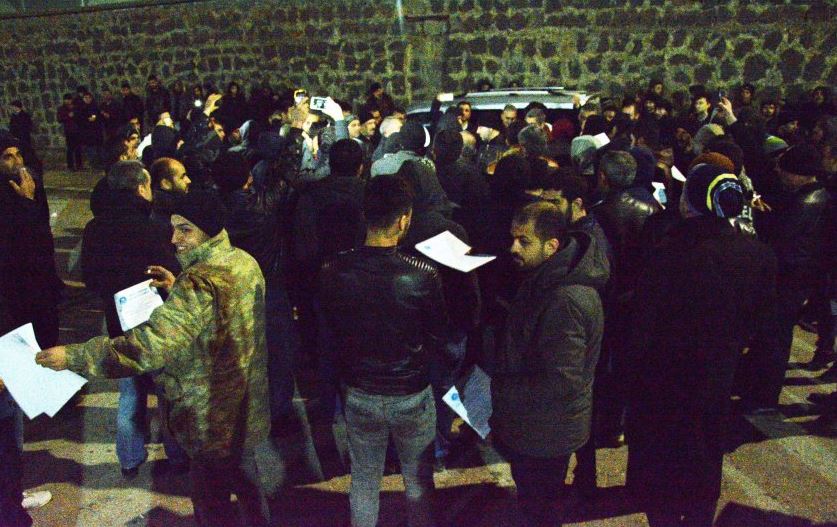Bosses everywhere try to steal as much as they can from the workers. One way this theft works is to pay as little as possible to the workers who produce the commodities the capitalist sells

Bosses everywhere try to steal as much as they can from the workers. One way this theft works is to pay as little as possible to the workers who produce the commodities the capitalist sells.
Although the official minimum wage had been raised by 26% in Turkey, many business owners do not comply. They threaten the workers with layoffs or other measures if they demand the legal and official minimum wage. In Turkey, threatening the workers with replacing them by migrant Syrian workers who are forced to work for nearly nothing is common. Especially in the South-East of Turkey where the Syrian refugees who escaped the assault on their country have settled, this threat is widespread.
Canan Textile, one of the largest textile manufacturing plants in Turkey is situated in Gaziantep, a south-east city planned to become an industrial powerhouse. City has been inundated with refugees looking for work and to start a new life away from their devastated homeland, Syria. This gives the bosses an upper hand in the region to exploit their workers and pay much less than their fair share.
Canan Textile has too refused to acknowledge or to conform with the recently raised minimum wage. It is well known that the law for wage raise was only an election giveaway to obtain votes for the ruling AKP party, but it is also the result of long years of workers’ resistance and demands to earn a living wage. However, relying on the shrinking economy and very high rate of unemployment, the Canan Textile bosses, as well as many others, could get away with paying lower than the required minimum wage.
Citing the illegal practices of the bosses and many attempts at negotiating better conditions, the textile workers walked out. Before their action, the company agreed on an 18% hike which was substantially under the legal minimum wage. First it was the 4-12 shift workers who refused to enter the plant. They were followed by the midnight shift who refused to cross the picket line. Finally, the day-shift workers joined them and the production in one of the largest textile mills screeched to a halt as the entire 1000 workers stopped work.
Corporation responded to the labor action with a statement that openly challenged the workers, “Those who want to work should, and those who don’t should just leave. 18% is all we can give.”
Workers, on the other hand, reported that the textile bosses had agreed among themselves to unite against the workers’ demands of wage hikes and to fend off any action together.
Working conditions have deteriorated in the plants for workers as they report of decrease in the number of workers but increase in the work load.
When the bosses could not break the solidarity of the workers, with the production down and deadlines for their commitments approaching, the corporation gave in and announced they would comply and pay the 26% increase mandated by the law. It took only a day to force the corporation to abide by the legislation they had been ignoring for months.
Similar worker actions had also brought success in recent months. Workers staging strikes at Şireci, Boyar Kimya and Flament Textile saw wage increases after work stoppages.
Sendika.Org News